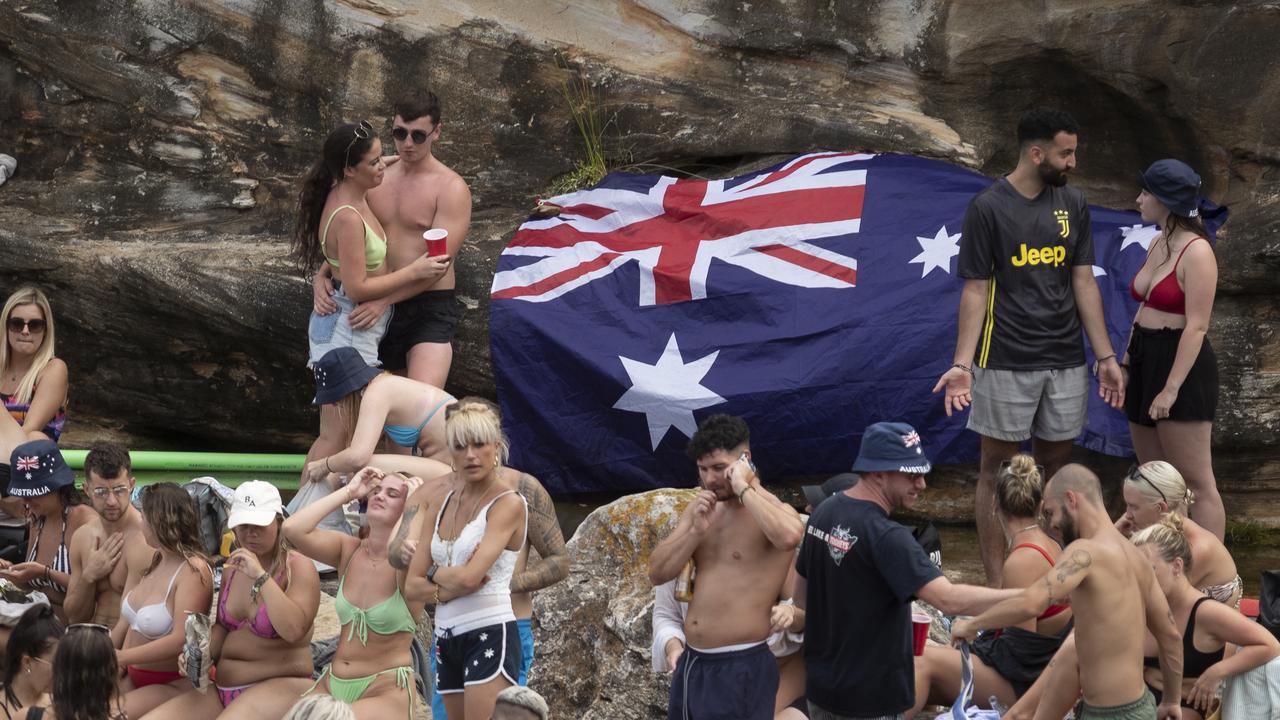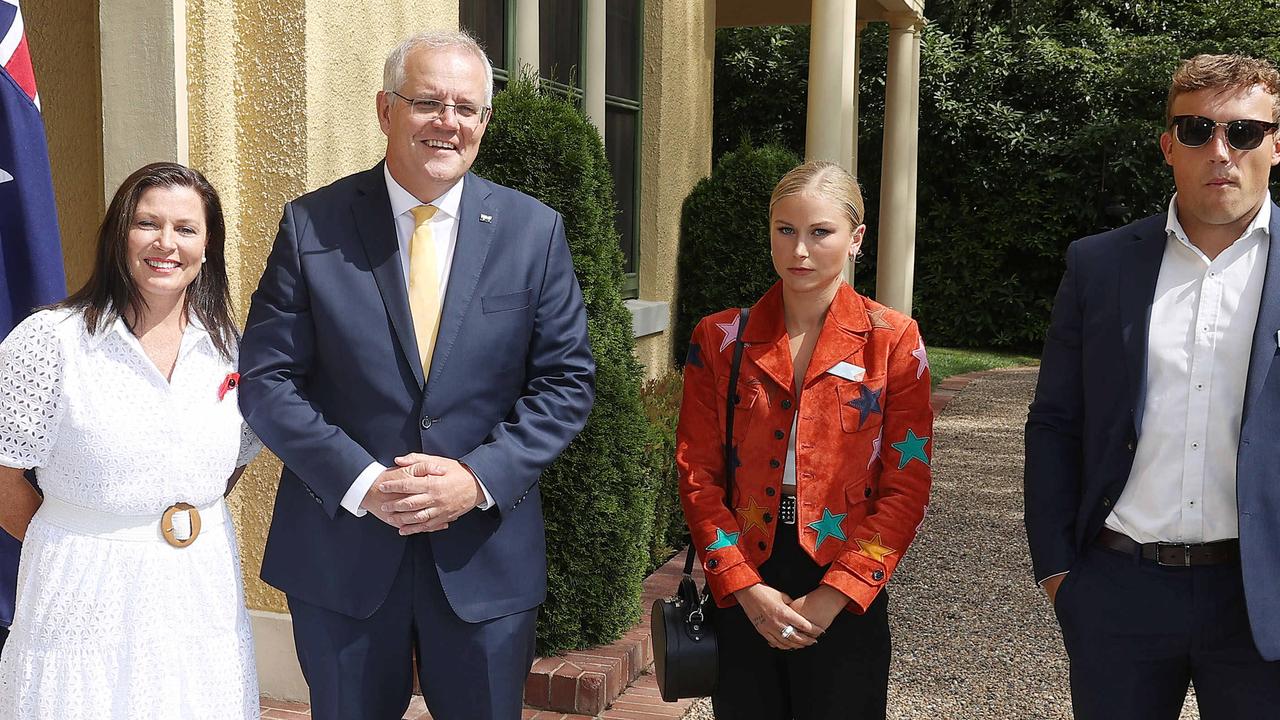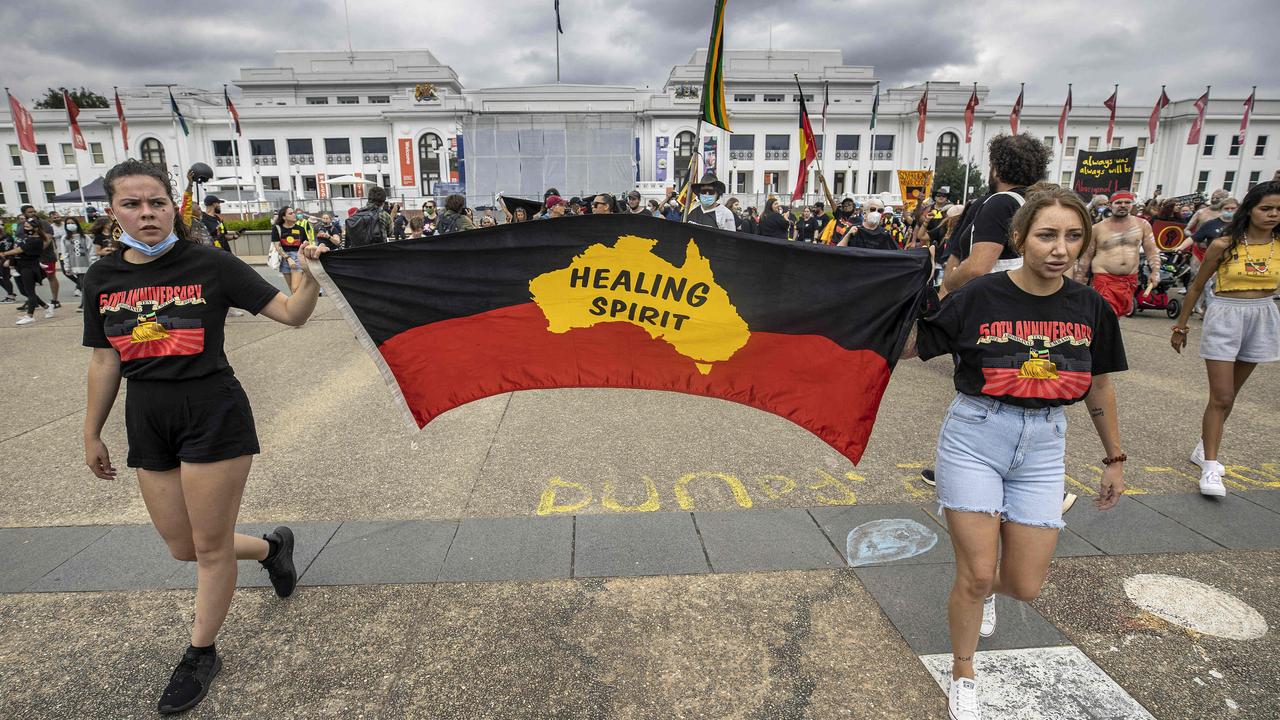Australia’s greatest lie revealed by the Covid-19 pandemic
The true damage of the pandemic was highlighted this week and it is clear that Australia has never been more divided.
COMMENT
In what has become an annual festival of outrage, there was much debate this week about whether January 26 should be the date we celebrate Australia Day.
But the real question is: What are we actually celebrating?
If the long-awaited dawn of 2022 has illuminated anything it is that Australia has never been more divided.
Long after we all supposedly agreed on the national strategy to open up, live with Covid and put the pain of 2021 behind us, numerous figures in politics and the media have simply refused to move on, preaching pessimism and fear at a time when we desperately need confidence and hope.
Most worryingly they are doing so in flagrant opposition to the facts. Such is our appetite for division that even reality itself is rejected if it refuses to match an ideological world view.
This is the true damage that Covid has done to us. The greatest lie of the pandemic wasn’t about vaccines or death rates. It was “We’re all in this together”.
We’re not and we never were. Everyone just took their own preconceived politics, not to mention their own privilege, and went their own way.

People simply made up their own rules — from imposing unnecessary restrictions at schools, childcare centres and businesses to refusing to wear a mask or get the jab. Premiers fought with prime ministers and sometimes their own ministers. Even epidemiologists were divided amongst themselves.
All of this continued even in the face of persistent good news as case numbers and hospitalisations dropped. Beautiful blue skies beckoned but still Australians kept bickering.
And of course as Australia Day loomed another political powder keg was put to the torch. As is now usual, both the day and the days leading up to it were drowned in an ocean of commentary and complaint that ranged from the profound to the ridiculous.
Despite sizeable majorities consistently supporting January 26, it is difficult to see how our national day will ever be able to shake off the spectre of toxicity that now haunts it each year.
And if that wasn’t divisive enough this year we found out that our outgoing Australian of the Year refuses to even speak to the Prime Minister.
Of course Grace Tame is perfectly entitled to speak or not speak to whomever she chooses — indeed, given what she has endured she has more right than most — but whatever the picture of her and the PM demonstrated, it was certainly not national unity.

And perhaps national unity is simply a thing of the past. With the endless fracturing and sub-fracturing of media and communication, with opinions now outweighing facts and every person now able to publicly express a different one, the idea of any kind of national cohesion might soon seem a very old fashioned one.
Frankly, this would not be unwelcome to some — which brings us to the real rub of the Australia Day debate.
Are we to believe that if we were to change the date that all those opposed to January 26 would suddenly be proudly celebrating Australia?

And of course it would then raise the question of whether we also change the flag and/or become a republic, which is also being hotly debated as we speak.
And so let us say that we changed the date, changed the flag and became a republic. Would that make those calling for it suddenly more proud and patriotic?
I would hope not. Because the one thing that all those changes have in common is that none of them will improve the lot of disadvantaged Australians one iota. None of them will put food on their table or a roof over their heads and none of them will change a single thing that has happened in the past.
This is why many of the wisest Indigenous leaders see changing the date as either immaterial or a second order issue to more substantial reform like an Indigenous Voice to Parliament that would ensure better public policymaking informed by Indigenous people themselves.
The kind of reform that increases life expectancy and school attendance and employment. The kind of reform that matters.
Because if we can close the gap between Indigenous and non-Indigenous Australians then whenever our national day is, at least we will truly have something to celebrate.
Joe Hildebrand is host of The Blame Game, 8.30pm Fridays on Sky News Australia






